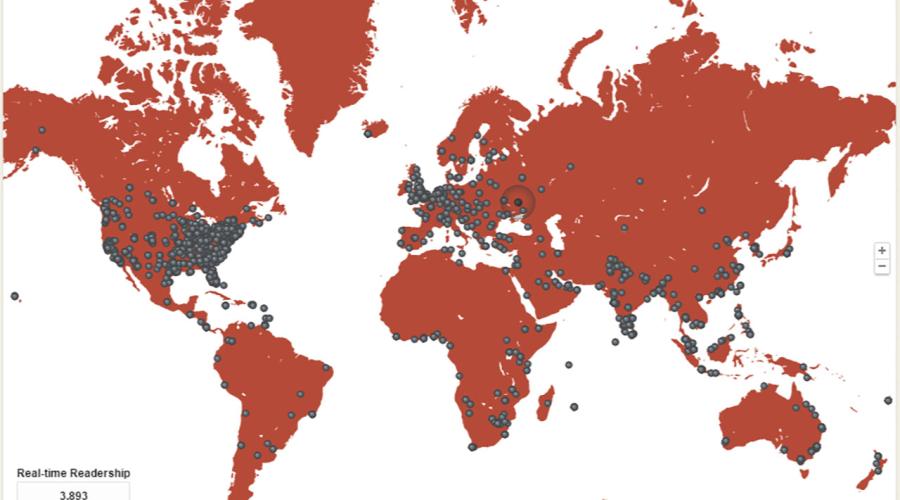
10 Years, 10 Million Downloads
The ILR School and Cornell University Library are celebrating DigitalCommons@ILR's 10 millionth download.
Launched just over a decade ago, DigitalCommons@ILR provides free online access to over 21,000 resources for executives, managers, workers and researchers. It serves as a repository not only of scholarship produced by faculty and researchers, but also historic and born-digital materials relevant to the ILR community and workplace researchers and practitioners internationally.
Covering all aspects of work and the workplace, DigitalCommons@ILR documents are freely available online with no access restrictions. Researchers from every state in the union and around the world download items, often found through Google searches, on everything from general workplace subjects such as creativity or teamwork to specialized questions such as the transition from disability to retirement benefits or the implications of specific labor laws and rulings. The site’s real-time readership map showing download locations emphasizes the school’s global reach as it pursues its mission of "Advancing the World of Work."
"DigitalCommons@ILR has been an invaluable resource in my efforts to disseminate my work to other scholars and practitioners located around the globe," according to Associate Professor of HR Studies and Director of ILR Executive Education Bradford Bell. He noted that the insights gained from having a work in the repository are invaluable, "including how much it is being read, how people are finding it and the interest it is generating in different parts of the world."
Many undergraduates and graduate students rely on DigitalCommons@ILR when conducting research. Simon Boehme '14 said, "I could not have completed my thesis without DigitalCommons@ILR."
The diverse holdings of DigitalCommons@ILR include academic research by ILR faculty members, thousands of examples of collective bargaining agreements in a number of industries and U.S. regions, reports and research from partners such as the United Nation’s International Labor Organization, and ILR's many centers and institutes. While much of the material was born-digital, others were scanned through grants from agencies such as the National Historical Publications and Records Commission and the National Endowment for the Humanities.
Staff from the Martin P. Catherwood Library's Digital Project Group maintain the repository; while librarians and archivists help identify new collections for addition. "For the last decade, we've worked to make DigitalCommons@ILR a great resource for the school, both in terms of strengthening the global reach of its scholarship and supporting the research needs of its community," said Jim DelRosso, digital projects coordinator.
In the past year, documents have been downloaded almost two million times and the rate of use continues to increase, DelRosso said. As the scope of its collections and its reach spread, DigitalCommons@ILR will continue to be a powerful tool supporting not only of ILR's land-grant mission, but its influence across the nation and around the world, according to school leaders.
To learn more, visit DigitalCommons@ILR, Catherwood Library.


